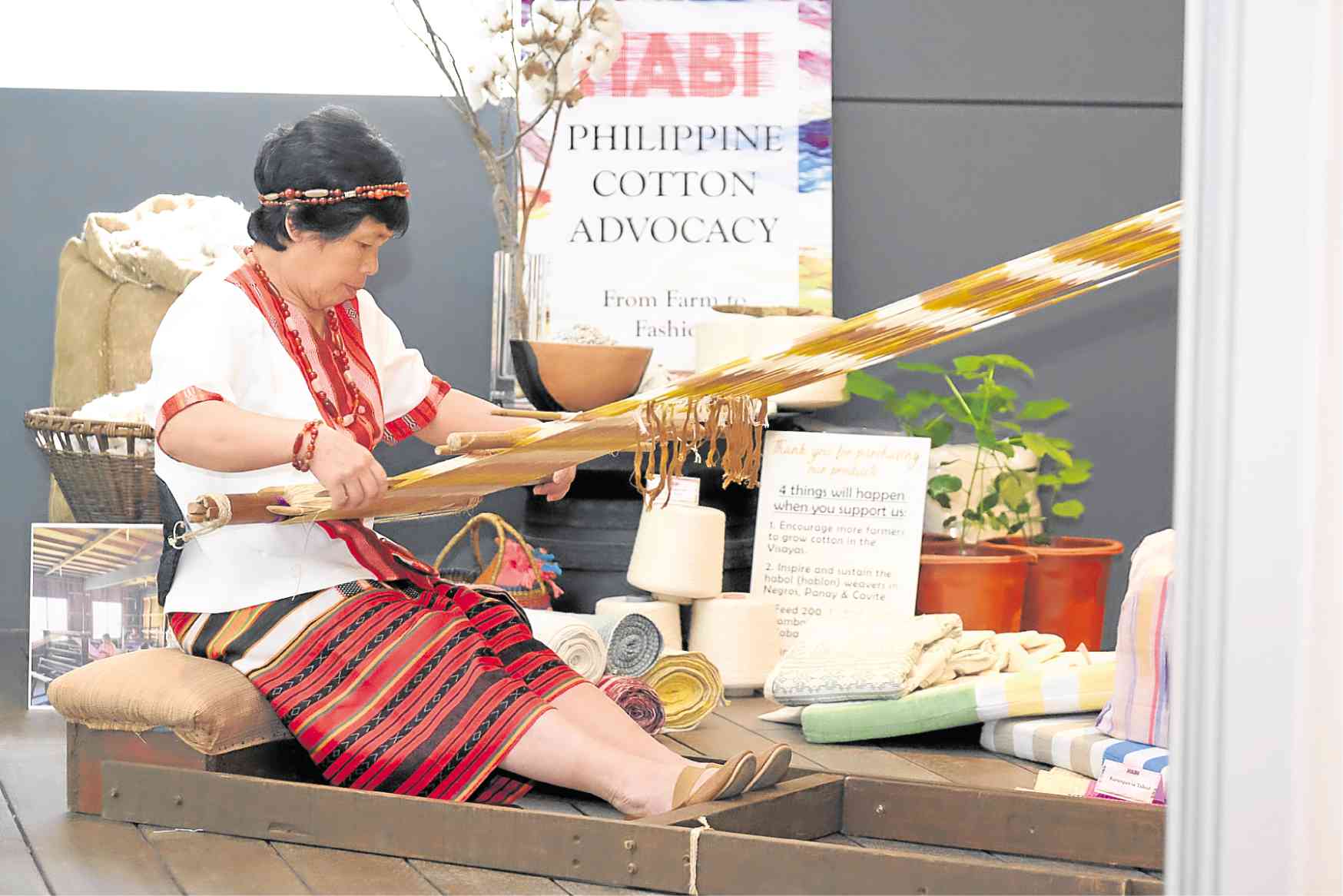Making local cool again

Habi The Philippine Textile Council is working on reviving the local cotton industry to encourage weavers to use natural fibers, which are more eco-friendly and have better quality compared to synthetic ones.
Today’s circumstances have never been better for the Philippines’ textile industry.
More Filipinos are buying local, are more eco-conscious and are more appreciative of artisanal products—to the delight of Habi The Philippine Textile Council.
“There’s this ‘cradle to cradle’ concept, wherein whatever you manufacture should go back to the biosphere,” says Habi vice president Michael Claparols. “Today’s generation is now becoming more aware of the ill effects of fast fashion on the environment.”
Habi was established under the auspices of the Museum Foundation of the Philippines after hosting the Second Asean Traditional Textile Symposium in Manila in 2009, with the main objective of preserving traditional weaving practices and textiles.
With that objective came the discovery for the need to use natural fibers to help in the textile industry’s sustainability—and thus, revive the country’s cotton industry as well.
“Ninety-nine percent [of weavers] still use synthetic fibers. Polyester is readily available, cheaper by about a third [of the price of cotton], and stronger. But we’re trying to change the mind-set, because look at what [synthetic fiber] does to the environment—it’s not sustainable,” says Claparols. “One-third of synthetic fibers found in the ocean come from the textile industry, plus the dyes. So going back to using natural fibers boils down to two things: One, cotton just feels more comfortable—it’s cooler; more important than that, cotton fabrics, when you put them under the ground, they will break down after five months, because it’s natural.”
Habi is working with farmer communities and the Philippine Fiber Industry Development Authority to increase hectarage planted to cotton, and for the past two years, has been purchasing cotton crops from farmers in Ilocos Norte and Iloilo. The lint was spun into yarn by the Philippine Textile Research Institute.
Within the year, Claparols says Habi will establish a spinning facility in Iloilo so that locally grown cotton can be spun for weavers. The objective is to place microspinning machinery in cotton-farming communities to lower the cost of production.
Cotton will be one of the highlights of this year’s Woven Voyages: 8th Likhang Habi Textile Fair 2018, which will be held on Oct. 12 to 14 at Glorietta Activity Center in Makati City.
The three-day trade fair will pay tribute to the country’s traditional weavers who hail from communities supported by the council.
The event also serves as a crash course on basic entrepreneurship for the weavers, says Claparols.
Joining the fair’s 80 exhibitors are established brands and manufacturers such as Rurungan sa Tukod Foundation, Interweave, Yakang Yaka, Manila Collectible, Casa Mercedes, Filip+Inna, Gifts & Graces Foundation, Good Luck, Humans, La Herminia Pina, Liwayway Handicraft, Creative Definitions, Kalinga Weaving, Ayala Foundation, Inc., and artist and designer Ditta Sandico.
A special attraction of Woven Voyages will be the showcase of textiles from other Asean countries, with participants coming in from Indonesia, Laos, Malaysia, Myanmar and Vietnam.
For the first time, exceptional piña fiber weaving will be recognized at the fair through the Lourdes Montinola Piña Prize. Lourdes Montinola is the author of “Piña,” a book presenting pineapple cloth as a national treasure. Cash prizes will be awarded to the top three winners.
All these efforts—and more—are geared toward further promoting Philippine textiles, says Habi chair Maribel Ongpin, and getting more people to patronize these products. The ultimate goal, she adds, is to preserve this important part of our culture, as well as uplift weavers who belong in some of the country’s most marginalized communities.
“We have to let people know that these textiles are out there. Once they know, they will appreciate, and once they appreciate, they will buy. Once they buy, then you help the rural economy,” Ongpin says.
